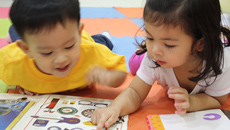Panth Vasse is a call to the Sikh community, our community, to come together
Vaisakhi 1699 – this is the day that we know of as the start of the Khalsa, but it took nearly 200 years to reach there. The Sikh psyche was being developed from Guru Nanak Dev Ji through to Guru Gobind Singh. The Guru Sahibs blessed Sikhs with the ability to function in this world while keeping Waheguru in their hearts and in their minds.
The path to 1699 was not an easy one for Sikhs but on this day Guru Gobind Singh Ji announced to the world that the Sikhs were not going to cower to the likes of the Mughal Emperor Aurangzeb. They were going to stand up to him and other oppressors and create a community that would fight for equality and freedom, and be willing to give their lives for it. The establishment of the Khalsa showed the world, and Aurangzeb, that all people were free and that the Khalsa would not allow for discrimination or oppression. The identity of the Sikhs was created in such a way that Sikhs were now given the responsibility to uphold their teachings and stand up in the face of injustice.

Guru Gobind Singh ji was an amazing example of leadership and resilience for Sikhs; they saw their Guru, their leader, lead with such love, compassion, humility and courage. In today’s world, Sikhs may not face the same sort of challenges, but they still draw inspiration from the way that Guru Gobind Singh Ji embodied “Panth vassé main ujjara, mann chaao ghanera.”
He sacrificed his father, mother, and his four sons for the Sikh Panth without any regard for personal consequences. Those sacrifices provide a tangible, potent example of never compromising on your values. What is being done by today’s Sikhs to fight different types of oppression? Who is showing this sort of strength, love and determination to the next generation of Sikhs?
In the 18th century, the Mughal Army of over 5,000 surrounded Anandpur Sahib and effectively cut off the city from the rest of the world. Sikhs, along with Guru Gobind Singh Ji and their family, were left with no supplies coming in, nor a chance to leave. During this time, the sangat would gather to do kirtan and simran which helped to build the morale and spirits of the group. It was a show of the power and strength of a collective group and what they could do for one another. This helped them to never forget their values and purpose.

Panth Vasse is a call to the Sikh community, our community, to come together to help recreate that same sort of strength and unity that we showed during the battle of Anandpur; during the Thanda Burj; during the establishment of Kartarpur; and, more broadly, during the time of our Gurus. Even though you may not be able to attend events, take this as an opportunity to take part in discussions in your community to celebrate and cultivate the Chardi Kala that our community has shown time and time again in the face of oppression, hardship and injustice.
ABOUT THE AUTHOR
Jasleen K Sidhu is the Director of Sikh Heritage Month BC (SHMBC). Sikh Heritage Month was first celebrated in BC in 2018. Its purpose is to celebrate the contributions and aspirations of all Sikh-Canadians and develop a greater understanding and appreciation of a rich, unique and diverse heritage. On April 30, 2019, the Sikh Heritage Month Act was formally recognized by the Government of Canada. This means that throughout Canada, April is to be known as “Sikh Heritage Month.”






